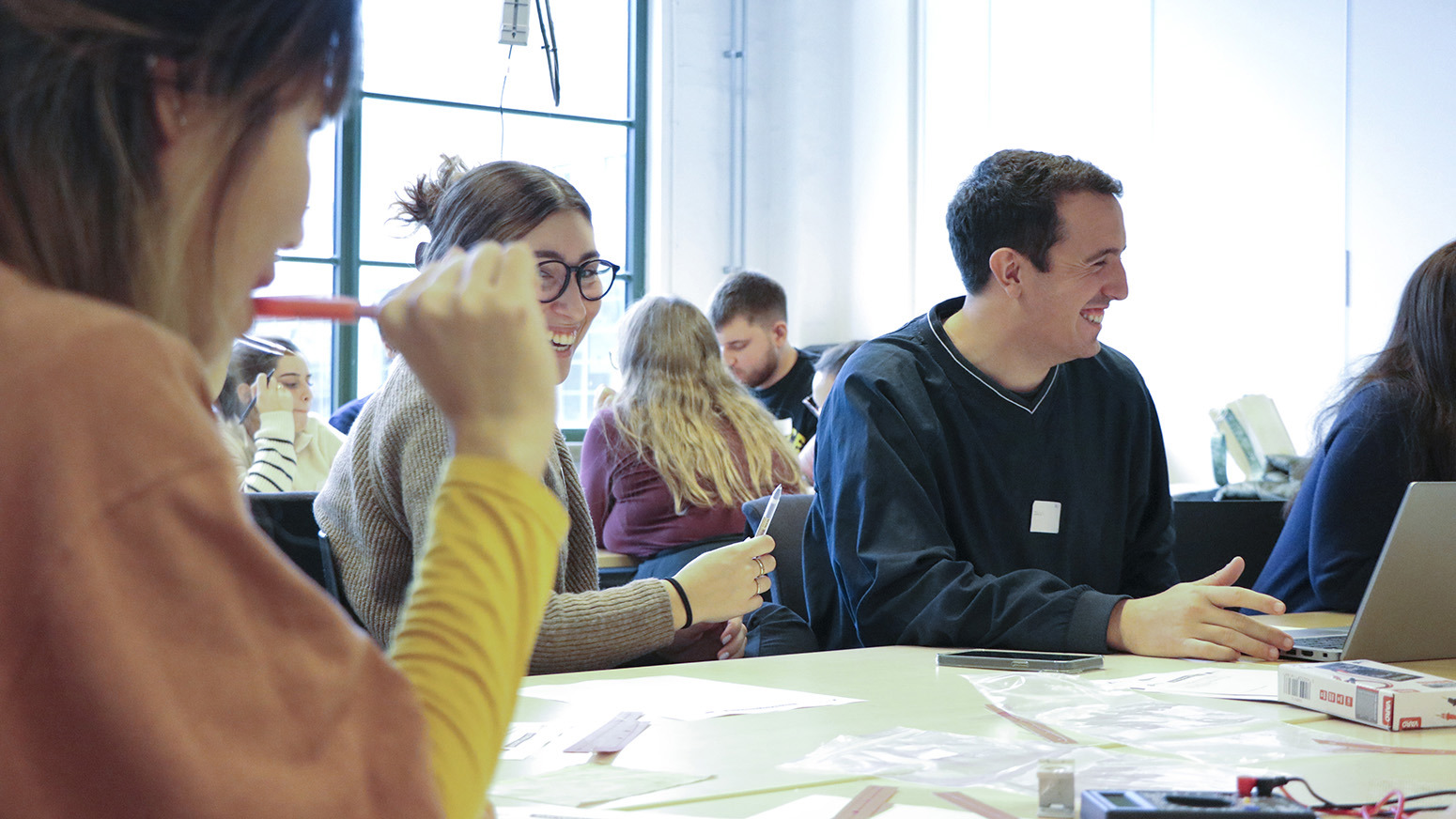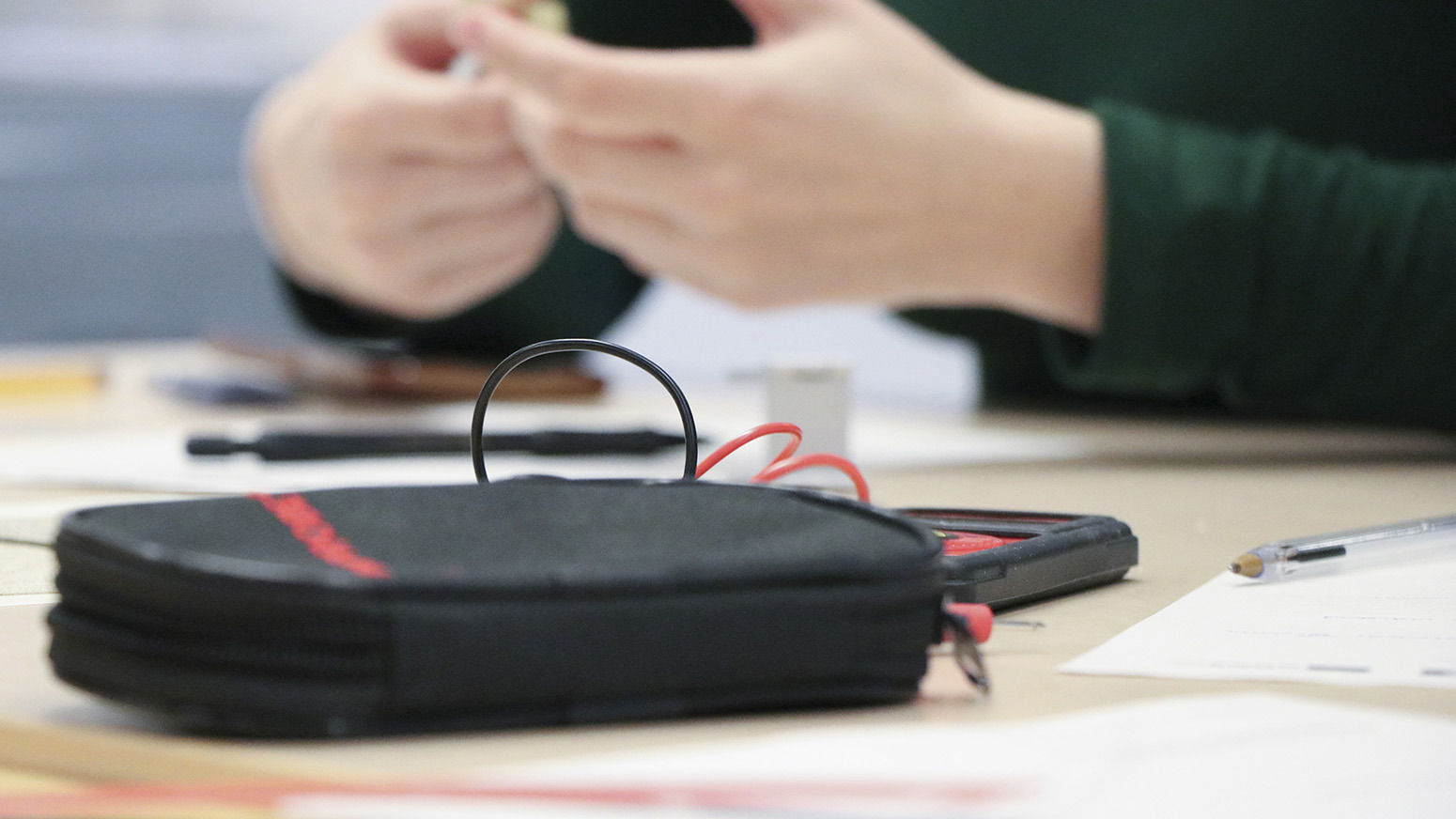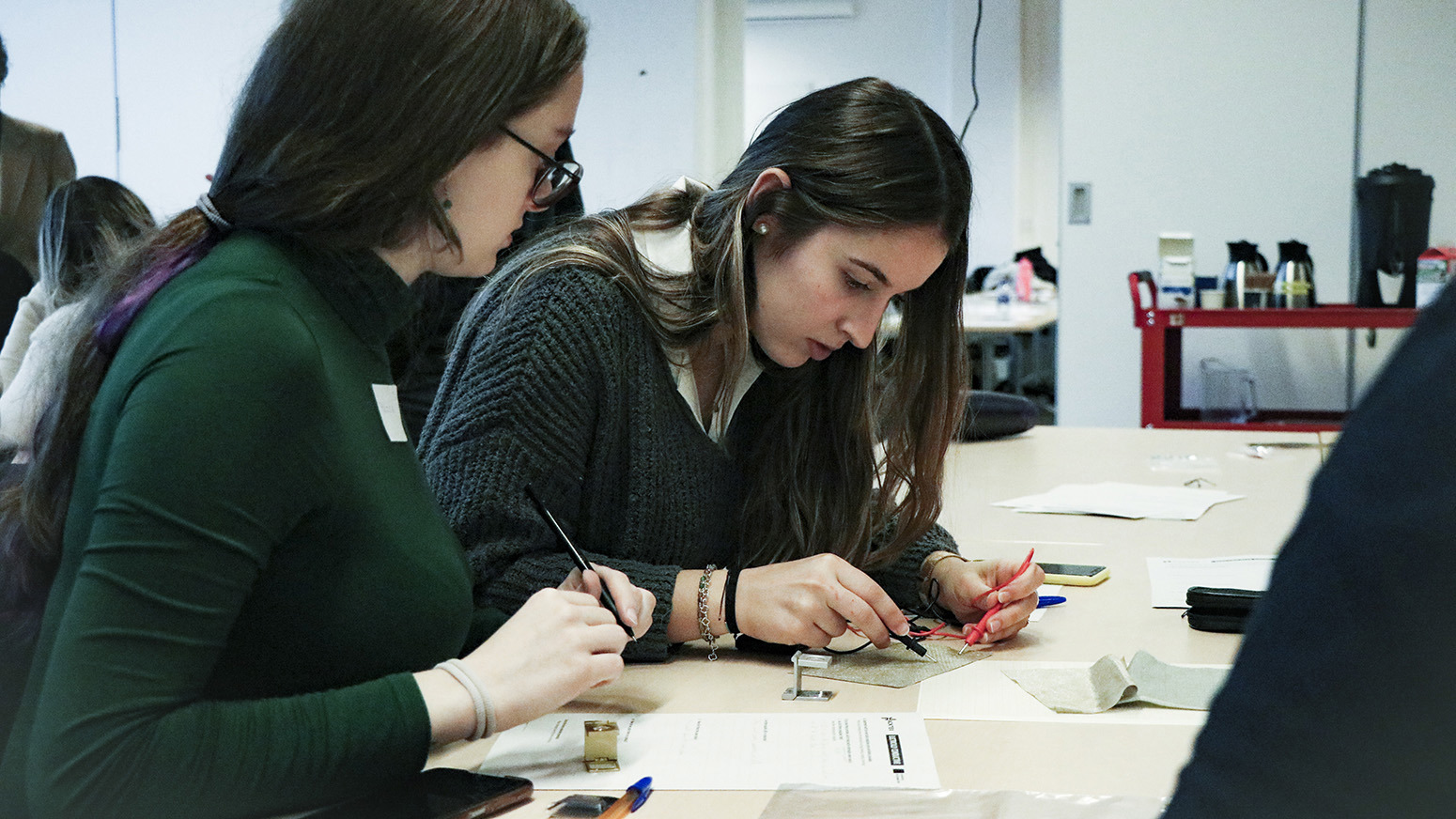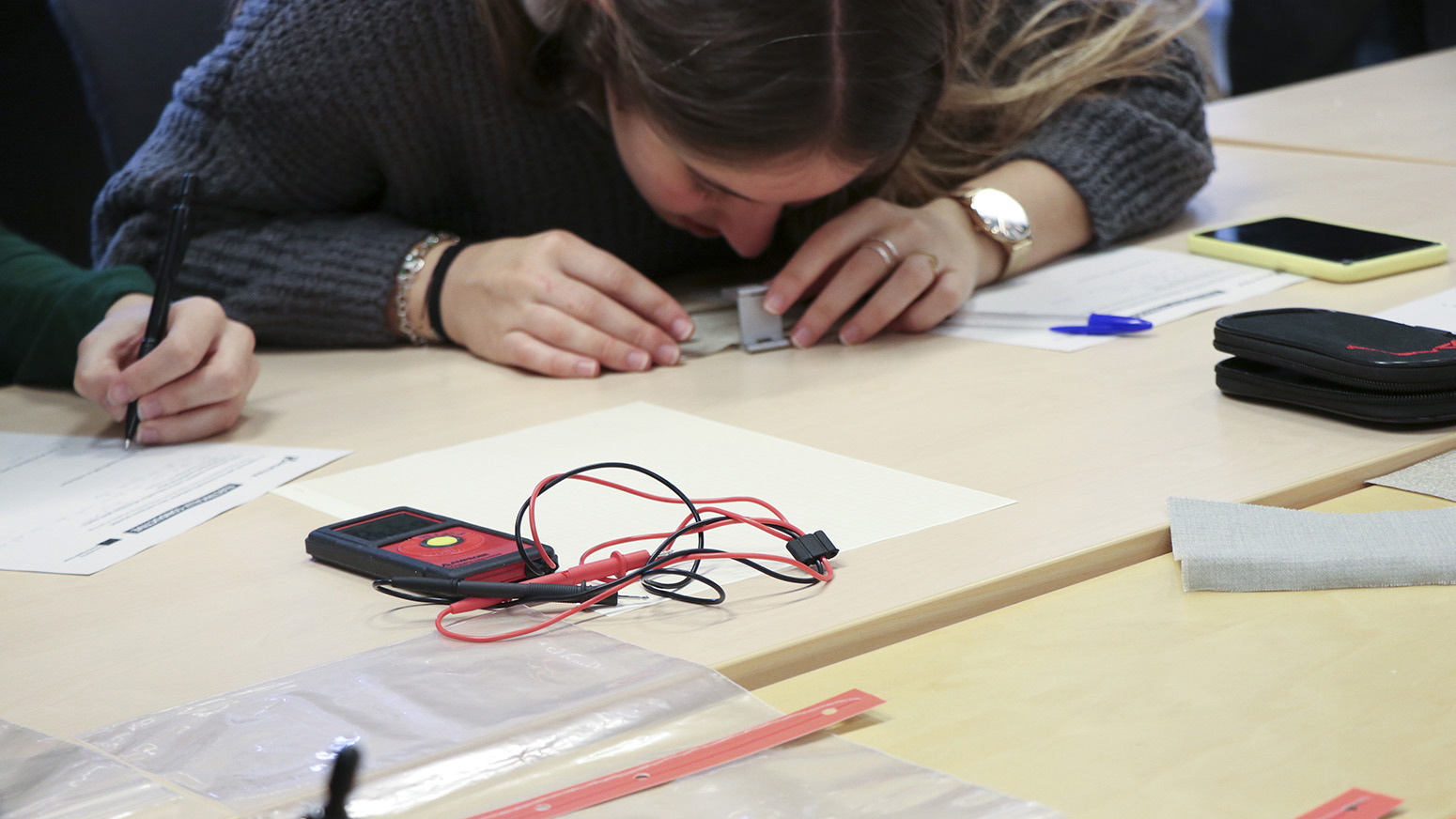Creative days at international bootcamp
2023-11-21
The camp was organised under the Hacktex project of the EU Erasmus+ programme and the students came from Spain, Romania, Greece, and Sweden.
In a classroom at the Swedish School of Textiles, we met students Diamantis Polychronis from the University of West Attica, Joan Sánchez from the Universitat Politècnica de Catalunya, and Denisa-Ramona Fraseniuc from the Gheorghe Asachi Technical University of Iaşi. With one day left of the camp, there is a buoyant atmosphere among them. They joke and finish each other’s sentences as they talk about their experience in Sweden:
“The task itself has been to develop a complete smart textile product that is sustainable. So we worked on everything from raw material selection and life cycle analysis to zero waste," said Diamantis Polychronis.
“I've been able to step out of my comfort zone and talk to people from other cultures, as well as test new technologies and unique labs here at the university," said Denisa-Ramona Fraseniuc.
She says that because the Swedish School of Textiles has access to advanced technology and unique machines in the labs, there is more room to be creative.
“But the best part has been learning how other cultures work, doing all the work in teams, and learning so much about smart textiles," added Joan Sánchez.
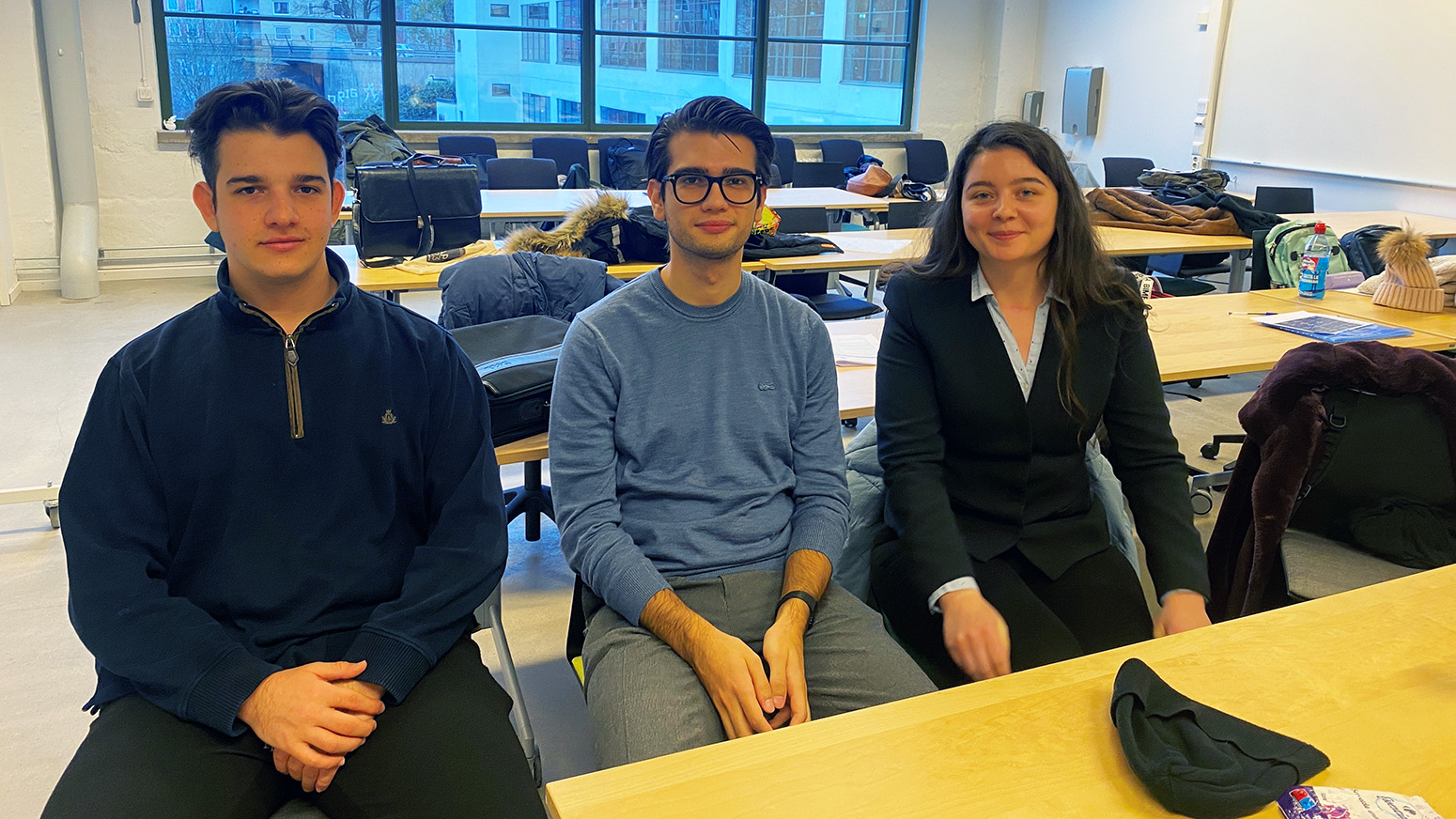
Diamantis Polychronis, Joan Sánchez och Denisa-Ramona Fraseniuc.
In addition to group work, the students have also made several visits, for example to the Smart Textiles Showroom, FOV Fabrics, the Swedish School of Textiles textile labs as well as the Textile Museum of Sweden.
Networking and internationalisation the main results
The project leader from the Swedish School of Textiles is Razieh Hashemi Sanatgar, Associate Senior Lecturer of Textile Technology. Within the Hacktex project, the participating higher education institutions have developed Massive Open Online Courses (MOOC) and the bootcamp was organized to test the material. The Swedish school of Textiles contributed in the bootcamp by introducing resource-efficient processes for functional and smart textiles.
"I am very happy with the results. Everything has exceeded my expectations and the students have been very enthusiastic, dedicated, and motivated," she said.
She points out that one of the most important results is the networking and exchange between the different participating countries.
“This is in line with the university's goals for increased internationalisation in research and education," she said.
The Hacktex project will be finalized in 2024.
Anna Kjellsson, Translation: Eva Medin
Marc Hermansson


